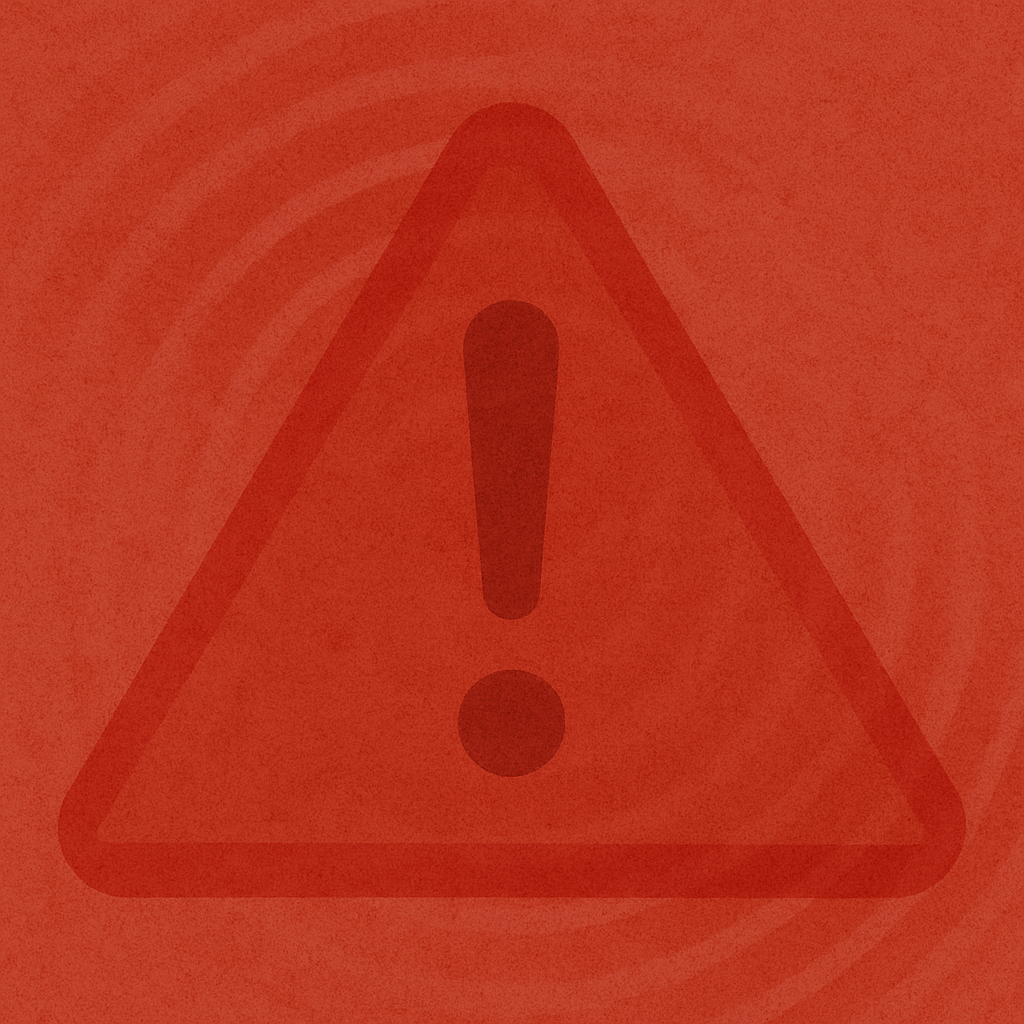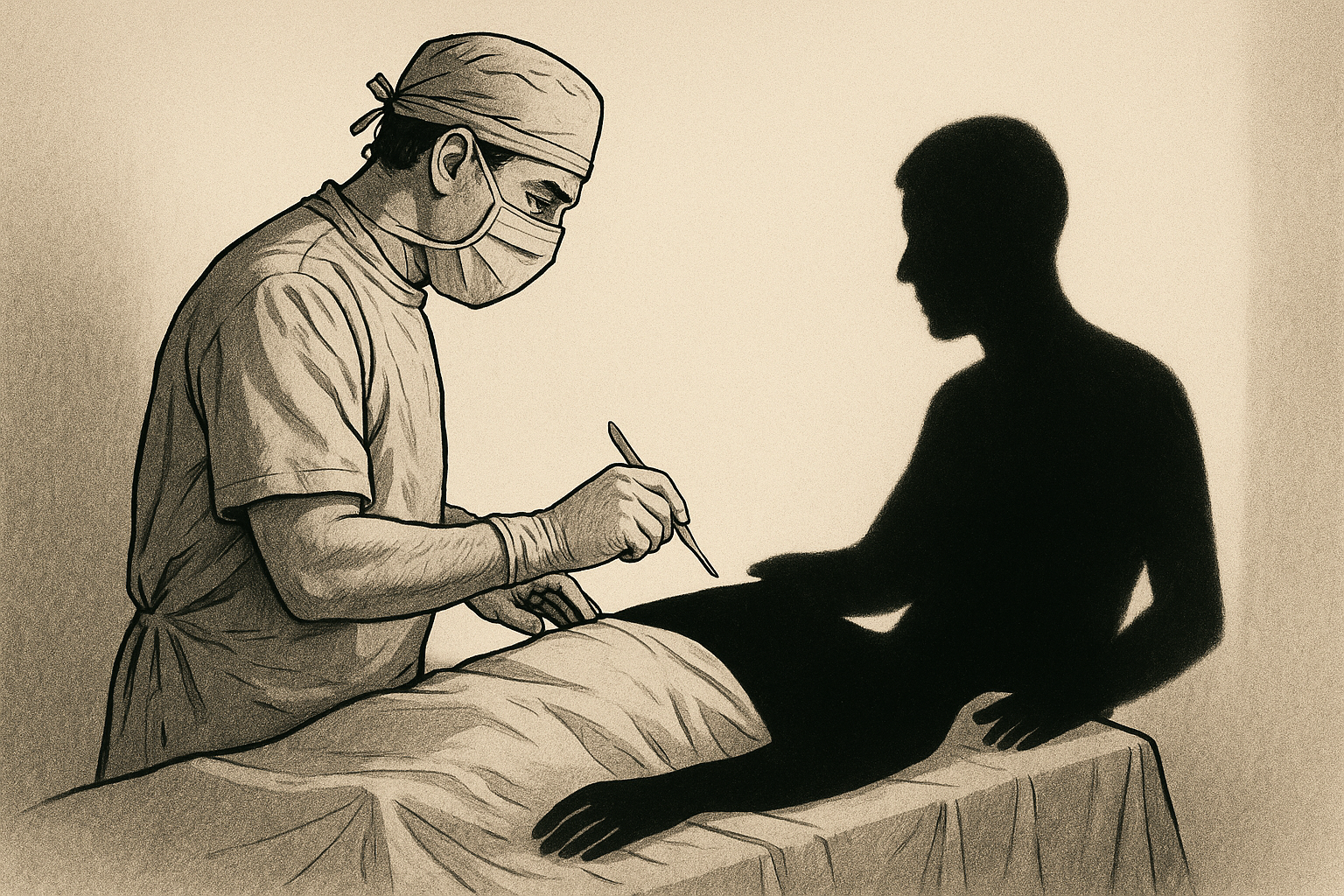🔒SICKCARE — Part III: The Identity Trap (When a Diagnosis Becomes a Destiny)
A diagnosis can offer relief, validation, and a name for suffering. But over time, it can also become a boundary—quietly reshaping identity, expectations, and possibility. This reflection explores how diagnostic language can harden into destiny, trapping people in stories that limit recovery, agency, and imagination, even when the original intent was care.
A diagnosis can offer relief, validation, and a name for suffering. But over time, it can also become a boundary—quietly reshaping identity, expectations, and possibility. This reflection explores how diagnostic language can harden into destiny, trapping people in stories that limit recovery, agency, and imagination, even when the original intent was care.
💲SICKCARE — Part II: The Invisible Subscription (How Chronic Illness Became a Business Model)
Subscriptions are supposed to be optional. But in modern healthcare, chronic illness often functions like one—quietly recurring, difficult to cancel, and financially stabilizing for the system that manages it. This reflection explores how care pathways, incentives, and expectations can transform long-term illness into a business model—and what that means for agency, healing, and trust.
Subscriptions are supposed to be optional. But in modern healthcare, chronic illness often functions like one—quietly recurring, difficult to cancel, and financially stabilizing for the system that manages it. This reflection explores how care pathways, incentives, and expectations can transform long-term illness into a business model—and what that means for agency, healing, and trust.
🔄 SICKCARE — Part I: Why Healthcare Rewards Recurrence More Than Healing
Healthcare speaks fluently about healing, prevention, and outcomes. But beneath the language lies a quieter engine—one that rewards volume, recurrence, and dependency more than resolution. This first reflection in the SICKCARE series explores the uncomfortable gap between what the system says and how it actually operates, and why understanding that gap is essential for anyone seeking real healing.
Healthcare speaks fluently about healing, prevention, and outcomes. But beneath the language lies a quieter engine—one that rewards volume, recurrence, and dependency more than resolution. This first reflection in the SICKCARE series explores the uncomfortable gap between what the system says and how it actually operates, and why understanding that gap is essential for anyone seeking real healing.
🌀 What Pain Sufferers Can Learn From Socrates
Socrates never wrote about chronic pain—but he spent his life questioning certainty, examining belief, and challenging the stories people told themselves about suffering. For those living with pain, his method offers something modern medicine often forgets: not answers, but better questions. This reflection explores how Socratic inquiry can loosen fear, restore agency, and open new paths toward healing.
Socrates never wrote about chronic pain—but he spent his life questioning certainty, examining belief, and challenging the stories people told themselves about suffering. For those living with pain, his method offers something modern medicine often forgets: not answers, but better questions. This reflection explores how Socratic inquiry can loosen fear, restore agency, and open new paths toward healing.
🧠 Know Thyself: The Oldest Advice in the World Might Be the Newest Medicine We Need
“Know thyself” was carved into stone long before MRIs, pain scales, or clinical pathways existed. Yet in modern healthcare, self-understanding has quietly been replaced by external authority, labels, and protocols. This reflection explores why the oldest advice in the world may be the missing ingredient in healing today—and how reconnecting with self-knowledge restores agency, meaning, and trust in the body.
“Know thyself” was carved into stone long before MRIs, pain scales, or clinical pathways existed. Yet in modern healthcare, self-understanding has quietly been replaced by external authority, labels, and protocols. This reflection explores why the oldest advice in the world may be the missing ingredient in healing today—and how reconnecting with self-knowledge restores agency, meaning, and trust in the body.
⚠️ What If Something Really Is Wrong?
Healing doesn’t happen when we hand over the pen and wait for someone else to write our story. Even if the pain isn’t your fault, reclaiming agency gives you back the power to shape what comes next. You don’t have to stay passive, you can take the lead.
We all worry about missing something serious. Red flags matter — cancer, infection, fracture, cauda equina. They must be ruled out. But once danger is cleared, pain doesn’t just vanish into “nothing.” Chronic pain isn’t fake — it’s a nervous system doing its job too well. Pain is a story, not just a signal.
🧩 The Cost of Giving It Away: Why Agency Is Non-Negotiable in Healing
Healing doesn’t happen when we hand over the pen and wait for someone else to write our story. Even if the pain isn’t your fault, reclaiming agency gives you back the power to shape what comes next. You don’t have to stay passive, you can take the lead.
When you give away your story, you give away your power.
Healing doesn’t happen when we hand over the pen and wait for someone else to write our story.
Even if the pain isn’t your fault, reclaiming agency gives you back the power to shape what comes next.
You don’t have to stay passive, you can take the lead.
🚫 The Pain of Too Much: Why Healing Requires Saying No
In modern rehab, we often confuse more with better. But healing doesn’t happen when we add more tasks, it happens when we make space for what matters. Inspired by Greg McKeown’s Essentialism, this post invites you to say no to noise and yes to what restores agency.
In a world of more, sometimes healing starts with less.
“If you don’t prioritize your life, someone else will.”
— Greg McKeown, Essentialism
In modern rehab, we often confuse more with better.
But healing doesn’t happen when we add more tasks, it happens when we make space for what matters.
Inspired by Greg McKeown’s Essentialism, this post invites you to say no to noise and yes to what restores agency.
❓ Start With Why (In Pain)
Simon Sinek taught leaders to start with purpose. What if patients and clinicians did the same?
This piece explores how reconnecting with your why in the healing process can restore clarity, agency, and momentum — even in the middle of pain.
Pain isn’t just a problem to solve.
It’s a signal, yes — but often of something deeper: disconnection from purpose, identity, or meaning.
In medicine, we often leap to what to do: the exercise, the modality, the pill, the injection, the surgery.
But what if the most important healing question isn’t what or how…
—it’s why?
This piece explores how the framework made famous by Simon Sinek — “Start With Why” — applies just as powerfully to healing as it does to leadership.
It asks:
• Why do you want to heal?
• What would feeling better allow you to do, be, or reconnect with?
• And is your care aligned with that purpose — or pulling you further away?
This Wondering offers a way to re-anchor healing in meaning, and introduces the “Healing North Star” tool to help clarify and reclaim your why.
✅ Are My Incentives Aligned with Their Agency?
You care. You want to help.
But in a system driven by productivity and compliance, even well-meaning clinicians can find themselves nudged away from what matters most: the patient’s agency.
This piece challenges you to pause and reflect — not just on what you’re doing, but why you’re doing it… and who it’s really serving.
It introduces an insight about realigning care with conscience — especially in moments of burnout, frustration, or routine.
You’re doing your best to help, but the system has its own agenda.
Sometimes, healing gets quietly replaced with productivity.
Agency gets overshadowed by compliance.
Care becomes protocol-driven instead of person-centered.
This Wondering invites a pause, a moment to reflect not just on what you’re doing, but why.
And who benefits from your current approach.
Because the truth is: misaligned incentives can sabotage even the best intentions.
This is a call to realign your practice with what matters most: their agency, and your integrity.
🧰📈 Reclaiming Work as a Health Outcome
What if getting back to work wasn’t the end of healing, but part of it? Work isn’t just economic. It’s emotional, social, and deeply tied to our identity. This piece rethinks how “return to work” can be reframed as a therapeutic milestone, not a discharge note.
Work isn’t just what we do — it’s where our identity, movement, and meaning often live. But when pain enters the picture, we tend to treat work as a risk factor instead of a recovery milestone.
What if we flipped the frame?
What if getting back to work is healing?
This piece explores how reclaiming meaningful work — not just as employment, but as purpose — could become one of the most powerful, overlooked outcomes in modern pain care.
🗽The Other Kind of Independence
“This July 4th, beyond the fireworks, lies a deeper freedom: freedom from pain, freedom of choice, freedom to reclaim your story. Independence isn’t just national—it’s personal.”
This July 4th, as fireworks explode, consider a different kind of independence—the one born in your body, your breath, your choices.
Independence isn’t just a national story. It’s personal:
Pain steals agency. It narrows your world and rewrites your story.
Claiming agency is an act of healing. It’s saying, “My pain doesn’t define me.”
Independence isn’t isolation. It’s the freedom to rest, move, ask for help, define recovery on your terms.
Small rebellions matter. A deeper breath. A step you thought you couldn’t take. A moment you reclaim.
This week, let your own quiet firework explode in your body. A declaration: I still choose.
What does independence look like on your healing path?
🔁 The Scapegoating of Pain: How Medicine, Meaning, and Identity Collide
When pain defies simple explanations, we often search for someone—or something—to blame. In medicine, that blame often lands on the patient’s own body. This piece explores how modern healthcare unconsciously echoes ancient scapegoating rituals, turning ambiguous pain into mechanical diagnoses and shrinking identities around fear. But there’s another way: one that restores meaning, agency, and the full complexity of what it means to hurt—and to heal.
When pain shows up without a clear cause, we panic — and medicine often reaches for easy scapegoats. “Bone on bone.” “Degeneration.” “Instability.” These labels offer comfort through certainty, but they can quietly erode a person’s confidence, identity, and sense of agency. We trade complexity for simplicity, and in doing so, the body becomes the villain.
But what if pain isn’t a crime scene… and the body isn’t the criminal?
This post explores how the search for answers in pain care mirrors ancient scapegoating rituals, where uncertainty is offloaded onto something we can name — even if it’s wrong. It challenges the biomechanical myths still dominant in medicine and offers a new path: one that honors complexity, restores trust, and rewrites the story from “I am broken” to “I am adapting.”







